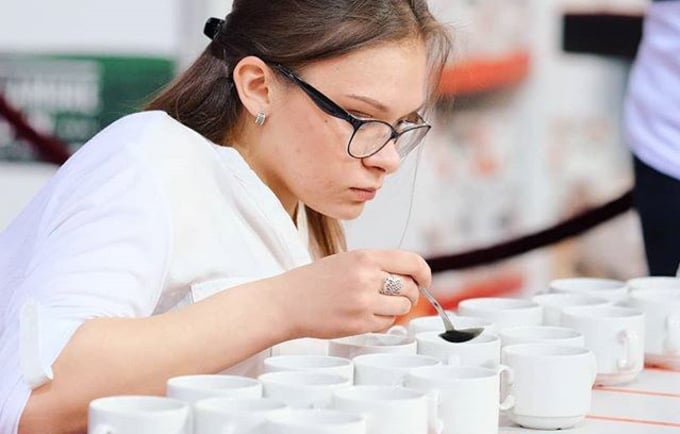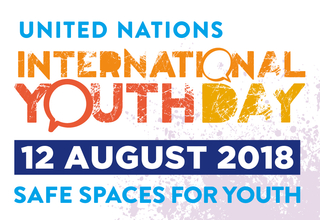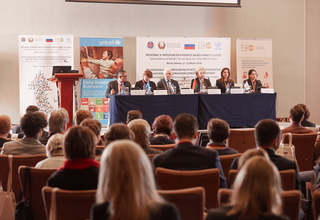Today Alexandra is talking to Natalia Astanina, 25, born in Lida, Belarus. She lives and works as a barista in Minsk, Belarus. She is a multi-time champion of Belarus in sport wheelchair dancing and a bronze winner of Continent Cup 2019. She skydived a few times; and she is an educated makeup artist.
She home-schooled and graduated in Lida, then she entered the Moscow State Humanities and Economics University soon after. The university is an inclusive tertiary education institution. She graduated with her Bachelor’s in Inclusive Education as an Educational Psychologist.
There are many higher educational institutions in Belarus, but you chose Moscow. Could you please tell us why?
I became an Educational Psychologist in Inclusive Education upon graduation from the Moscow State Humanities and Economics University. At the time of my enrollment, which was in 2012, there was no such specialty in Belarus. To date, as far as I know, such a specialty is just emerging in Belarus.
In the 90s, you would graduate from a boarding school followed by a college for people with disabilities. It is a higher educational institution today. Some students, half of them, probably more, are people with disabilities, locomotor disabilities predominantly. The other part is students without disabilities.
The university has a truly barrier-free environment. There is a dormitory, a canteen, and passages interconnect all buildings in the university campus. In general, one can study, eat and live there without going out.
Why did you come back to Minsk?
I had had no objective to stay in Moscow initially. The city is too big and hectic to me.
When in Moscow, I started discovering how to move around the city on my own, how to use public transport. Lida is still a small town and my parents and friends are nearby, and I have never really needed public transportation.
The university would organize many versatile events at the beginning of my studies there. We attended conferences, concerts, participated in a parade of students. Some events provided transportation logistics, and others required us to go there on our own. That was the beginning of my independent moving!
I belonged to a group of students who did not dwell in a dormitory, but were going somewhere all the time. I shopped groceries, visited shows, conferences, attended various training courses, and always did all of this myself. I had no smartphone like the one I have today. So, I mapped my route, copied my screen, and it took me to the destination.
Sometimes, I found myself in situations when I did not know where I was and then I asked passers-by and got out somehow.
A person with a disability who was a wheelchair user and came from a small town, I would discover more of my abilities through such journeys. It was Moscow where I learned how to move independently!
Was it scary?
No.
Have you had cases when you had to abandon your route because it was difficult?
It never happened. When in Moscow, I took a makeup artist course in addition to my university studies. The course was similar to the project of Alexander Avdevich (a Belarusian activist, who believes all the barriers are in people's heads and who has launched a free rehab gym for people with disabilities in his home town, has launched the Inclusive Barista project, and not only; at the age of 26, he got in a racing motorbike accident and after intensive care, long treatment and multiple rehabs he got back home to his parents as a wheelchair user) precisely because people with disabilities could try becoming makeup artists and continue working in the field. The route from the dormitory to the makeup course was very hard. I had to change public transport three times, and walk for 15 more minutes. It did not stop me, because I knew why I was doing it. I knew that I wanted it. I’m lazy by my nature, but I never give myself the slack.
It was even snowing on the day when I had to take my exam at the makeup school. A lot of snow! I was sneaking through fresh and thick snow, it was hard, but I did it, and then I realized I could do anything!
In difficult situations, I discover my abilities and I say to myself: “I can do anything, I’m good.”
You’ve tried various activities. Tell me why, please.
Yes, I’ve tried a lot of things. Para dance sport, parachuting, I’ve worked as an Educational Psychologist, I’ve tried fencing and basketball. I’ve taken a training course under the Inclusive Barista project. Now, I work as a barista. I’ve tried to understand what I like, what I can devote my life to. How can one understand without trying?
When I try to do something new for myself, I come to understanding: it turns out that I can do a lot; although, you don't even think about it or doubt it. All my attempts reveal me; I discover new facets in me, and I like that.
Do you work as a barista now?
Yes! I never thought that I would become a barista. I didn't really like coffee. And I don't like it very much today, because I’m a tea person. But after being trained, I started working part-time at events as a barista, and I participated in a coffee tasting competition. After Sasha Avdevich launched his coffee shop to employ wheelchair users only, I decided that I wanted to work in the business.
Now, I work in the third coffee shop. It is the Coffee Point at the A1 Belarus HQ (A1 is a telecom, ICT, and content services provider, a part of A1TelekomAustriaGroup, a European division of the América Móvil multinational holding).
What do you think has helped you to have such an active life position?
My parents, first of all. Their attitude towards me and the way they educated me have helped me navigate in this life and achieve my goals. My parents have never emphasized that I was a wheelchair user and a person with a disability. They’ve treated me like an ordinary child, but with some peculiarities.
With time, I’ve realized that there are limitations, but they are not always physical.
I keep reflecting that thanks to my disability I have such zeal for life.
And my parents keep supporting me in many ways, and I have to break their stereotypes sometimes, I advise them, and they listen to me.
I think that my achievements in many ways are because I met the right people at the right time.
A human being perfects in different ways, and it happens eventually.
Does the public opinion influence you?
No, it does not. You should develop yourself without looking at other people and do what is close to you.
How do you react to failures?
I’ve had no failures as such. If I knew that something wouldn't work out, I didn't take it. I assess the situation reasonably, and I project whether I can do it or not. And if something was hard to get, I tried to finish what I had started, and ultimately I realized it was not my cup of tea.



